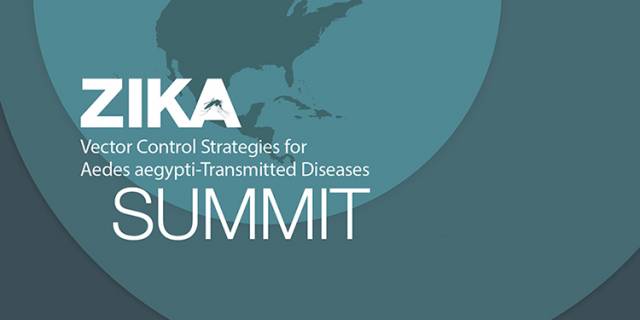You are here
Innovative Strategies Needed to Control Aedes Aegypti Mosquitoes
Since the 1870s and a discovery by Sir Patrick Manson, physicians have known that mosquitoes can transmit diseases to humans. Today we know, more specifically, that Aedes aegypti mosquitoes transmit a variety of dangerous diseases, including yellow fever, dengue, Mayaro, chikungunya and Zika.
Aedes aegypti has been called the “cockroach of mosquitoes.” These mosquitoes live indoors and outdoors, can lay eggs in small amounts of water, bite during the day and night, and bite multiple people during their lifespan, creating the potential to spread viruses if a mosquito is infected.
While there are current vector control methods that are effective in controlling these mosquitoes, we must also consider new strategies to combat Aedes aegypti, which is prevalent in much of the world and is the mosquito that spreads Zika virus.
To further the search for these strategies, the Centers for Disease Control and Prevention (CDC) is hosting a two-day summit, which kicked off today in Atlanta. The CDC Foundation is co-hosting the summit with support provided by Bayer, the Bill & Melinda Gates Foundation, Oak Foundation, Orkin and SC Johnson.
The summit, Vector Control Strategies for Aedes aegypti-Transmitted Diseases Summit—Charting the Way Forward, brings together stakeholders from the United States and the international community. At the summit, experts will present on current vector control interventions, such as reducing sources for mosquitoes and treating areas with larvicide and adulticide. In addition, experts will discuss how these interventions may be better utilized and how to measure their impact on the spread of diseases to people. Attendees are sharing their experiences, research and practical perspectives and represent a variety of organizations and sectors, including government, research institutions, practitioners and industry.
Over my career, I’ve worked as a physician, educator, state public health commissioner and served as a CDC leader working with state and local health departments. In each of my roles, I’ve learned just how important CDC is to helping our nation—and really the world—prevent, detect and respond to health threats. But addressing a challenge like controlling Aedes aegypti mosquitoes requires the involvement of multiple sectors.
In this spirit, I am grateful to all of our donors for their generous support and involvement in convening this summit. We all must work together to find innovative approaches that can be used to safely and effectively control Aedes aegypti mosquitoes, thus diminishing the impact mosquito-borne diseases have on human health around the world.

